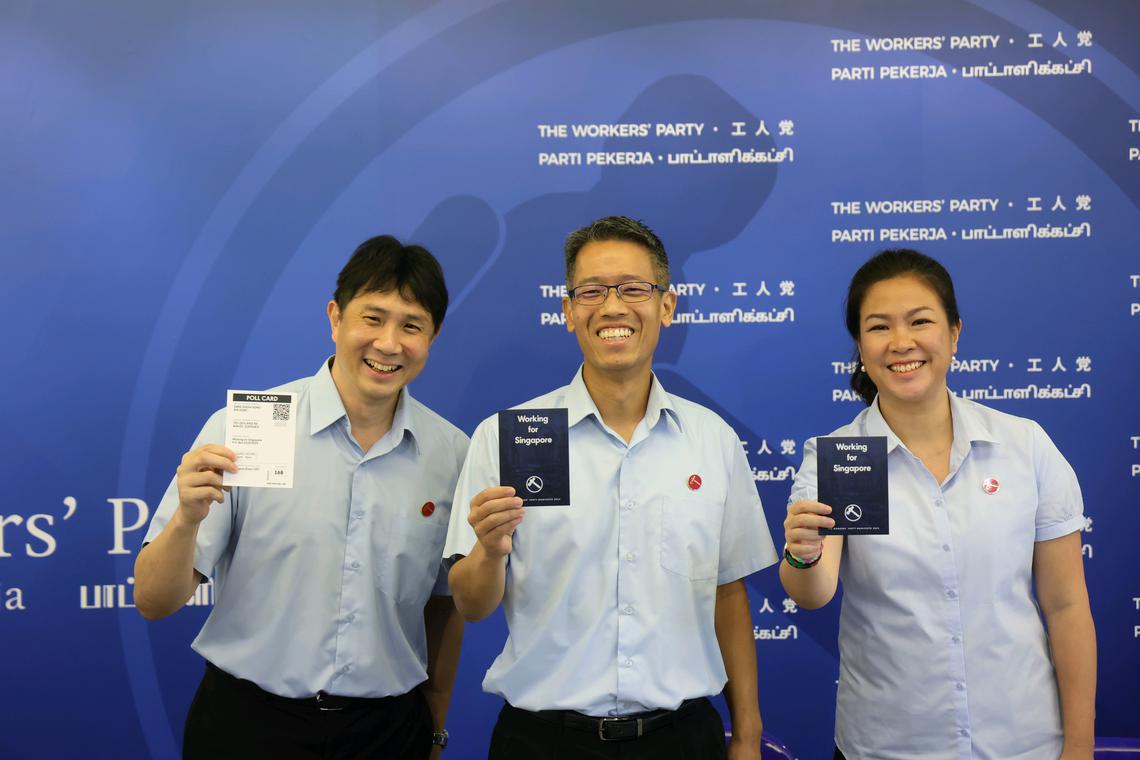Follow our live coverage here.
SINGAPORE – In the 122 pages of the Workers’ Party manifesto, launched on April 17, some 10 pages early on are perhaps the most interesting.
The party typically set out its views, intentions and proposals in the document, but this time around, it also included a section to highlight its impact on public policy.
“While we are not in government – and therefore not in a position to implement policy – we believe that many of our proposals do end up being adopted in some form, which ultimately benefits Singaporeans,” so the introduction to the section goes.
It counts 15 policies on which the party has made a difference, from the recently announced SkillsFuture Jobseeker Support Scheme, which offers financial support to retrenched workers, to the shorter wait times for Build-To-Order flats and the Healthier SG programme that focuses on preventative health.
Besides this part, which is akin to a report card, the manifesto also laid out 125 policy proposals in five areas: affordability and cost of living, economic growth and opportunities, inclusion and equality, accountability and democracy, and security and geopolitics.
Unveiling it, Mr Gerald Giam, who heads the party’s policy research team, said: “Our manifesto has essentially grown with us.”
In 2020, an unprecedented number of WP MPs were elected into Parliament, and this gave the party an opportunity to test out its ideas in Parliament, and put them through the “fire of debate”, he said.
“What we have today is a refined version, an enhanced version of the manifesto we had in 2020,” he added.
In 2006, the party manifesto was 52 pages long.
Prior to that, it was last updated in 1994.
That election, the party fielded 20 candidates, with the campaign slogan, which was also its manifesto title, telling voters: “You have a choice.”
That year, then party chief Low Thia Khiang was sent back into Parliament by Hougang voters, and party chair Sylvia Lim got a Non-Constituency MP spot as one of the best losers.
Then in 2011, the party beefed up its manifesto and asked voters to join it on a journey “Towards A First World Parliament”.
WP would act as a check on the Government, a role that Mr Low – who was still party chief then – had described as a co-driver.
“The co-driver is there to slap the driver when he drives off course” or falls asleep, he had said.
The message appeared to resonate with voters, and in that election, the WP was handed six seats, including five in Aljunied GRC.
It was the first-ever victory for any opposition party in a group representation constituency, one that took out a minister, and it cemented the WP’s position as a credible opposition party.
Then in 2015 and 2020, the party campaigned to send more of its candidates into Parliament, asking voters to “Empower Your Future” and “Make Your Vote Count”.
In 2020, it won the newly created Sengkang GRC, on top of its existing constituencies, securing 10 seats in Parliament.
All this while, the party has stressed its role as a responsible and loyal opposition, saying that its goal for the medium term is only to win one-third of the seats in Parliament, so as to deprive the ruling People’s Action Party of the supermajority needed to pass constitutional changes.
Yet, with three constituencies and two town councils under its charge, voter expectations, and perhaps even the party’s ambitions, must surely have grown.
It is no surprise then that the party should include a report card of sorts in its manifesto this year to show it has been effective in its role.
Its slogan for this election is “Working For Singapore”, and WP chief and Leader of the Opposition Pritam Singh had said in a message to voters that the party will do so by proposing alternative ideas that seek better outcomes for the country and the people.
But there is perhaps another meaning beyond just labouring for Singapore.
As the section on its impact seeks to show, the party is also “working” – in the sense that its presence and activities in Parliament has had the desired effect for the country.
Its efforts all these years as a co-driver have made the driver better, the WP seems to be saying.
Whether this word play is deliberate or not, the latest manifesto signals that the party sees itself as having progressed through the years such that it is now bold and confident enough to stake a bigger role in the political arena.
In the upcoming election, all eyes will be on whether and how the WP will venture beyond its corner, and the outcome will surely shape the next party manifesto in the years to come.
Join ST’s WhatsApp Channel and get the latest news and must-reads.

